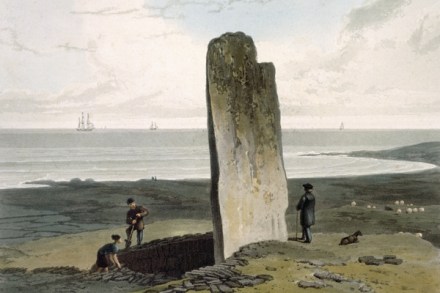Reading the runes
Martin Palmer is without doubt one of our leading authorities on the subject of Nature and sacred writing today — among his previous publications being Sacred Gardens and The Sacred History of Britain. One of the primary aims of his latest book is to teach us how to ‘read’ our surroundings; for, he believes, like all sacred art, Nature can be read as a book, if only one understands the language. Thus, through ‘decoding’ the towns, villages and countryside of Britain, we may come to see that ‘we are caught up in a part of something much greater and grander than ourselves’. The first half of the book covers ‘the











